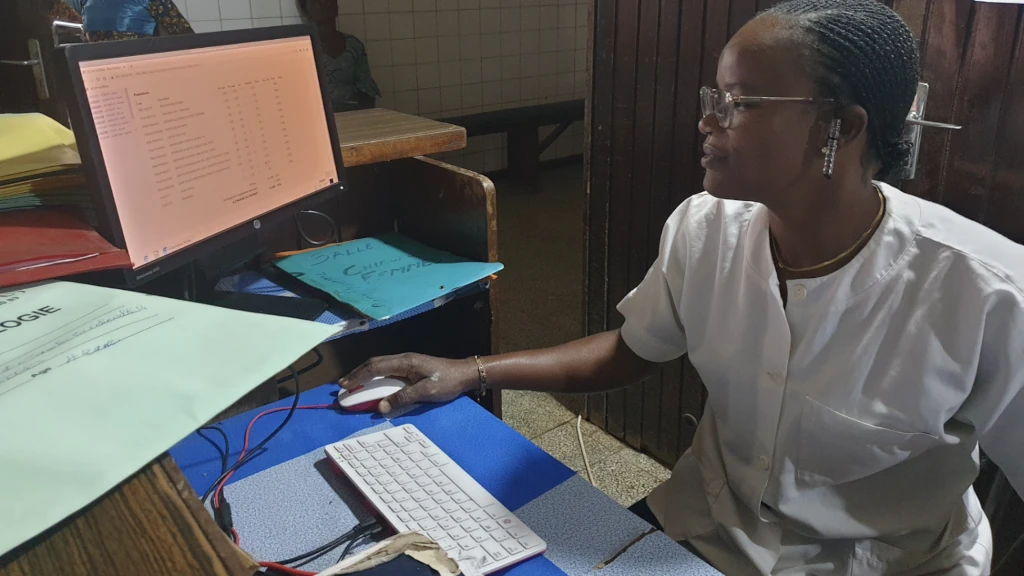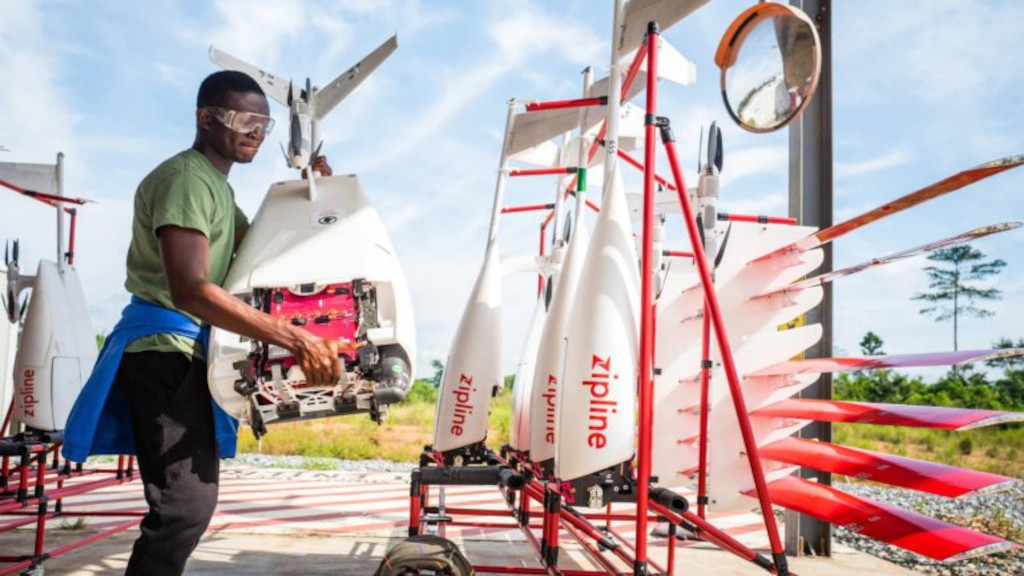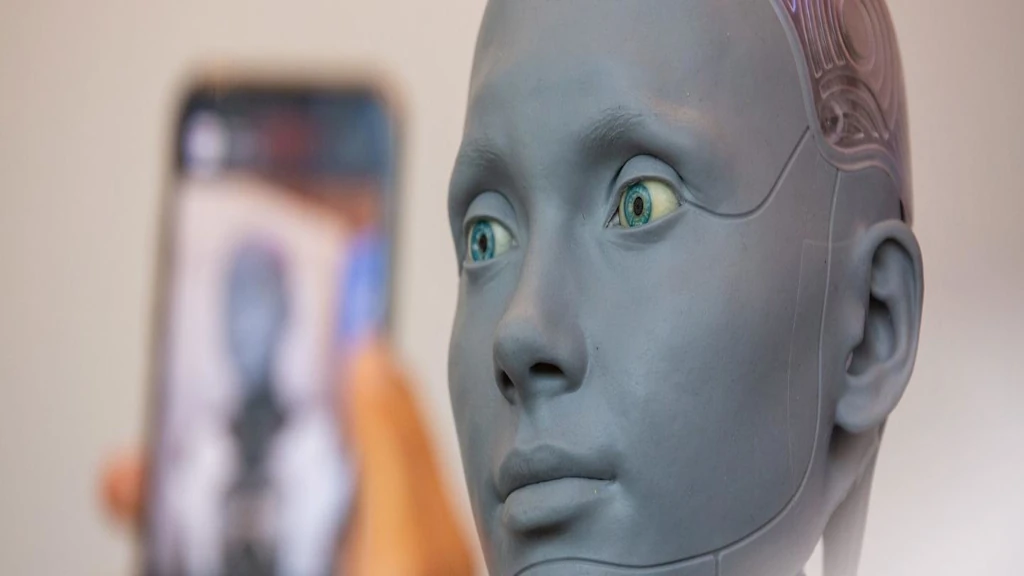Written by Kwame Ofori Appiah Published January 11, 2024
For decades, the haphazard system of property addresses in Ghana verged on the ridiculous. Despite several attempts to have a formalised structure in place, finding directions often required using local landmarks or specific vendors. Thus, the joke went, if the woman selling waakye (a local delicacy) had not set up her stall that day, the directions that depended on her position would be completely useless to the person to whom they had been given. The actual consequences of this, however, were far from funny.
In 2017, the current administration, led by President Nana Akufo-Addo, then in its first year, launched the Ghana Digital Property Address System – GhanaPostGPS, as it is known. It uses digital infrastructure to give every property a unique identifying marker that becomes its address. At the launch of the system, the President noted that an effective address system would aid emergency response, improve efficiency, reduce crime and provide a vital fillip to the e-commerce sector.
In the years since, name plates have been affixed to properties and it has become a requirement for official forms and formal communications to bear the addresses. Since then, invitations to parties, funerals and other social events invariably bear the 11-character designations. For the first time, Ghana seems to have cracked the address conundrum and is, by some measure, enjoying the benefits.
The novel solution to resolving an ages-old problem using digital technology was an indication of the approach that the government intended to take. Government pointed out that this was only part of a wider effort to deploy digital tools to address pressing national challenges.
Another approach was that of national personal identification. Without a robust system to register and record citizens and residents, policy making had lacked a vital component.
You cannot grow what you cannot measure and with the national identification system (the Ghana Card) now being rolled out, the government of Ghana is getting a grip on the number and demographic distribution of the people in the country, enabling it to better plan and develop policies.
A clear benefit is that with each citizen now mapped to a unique, digitised identity, it is much harder for people to have double identities or to avoid their statutory responsibilities to the state or private institutions.
So far, over 18m Ghanaians have registered for the Ghana Card and it has become the foremost identification document. Banks require it for transactions, leading to hopes that with concerns about identity mitigated, some risk in lending can be obviated, thus increasing financial inclusion, increasing lending, and with better risk profiling, reducing lending costs.
The card is the foundation of a SIM registration exercise that now links every single number issued by the mobile network operators to a traceable identity, limiting fraud
and discouraging mischievous
hoaxes.
The Ghana Card will also help overcome a perennial problem in Ghana’s public sector, the issue of ‘ghost workers’, whereby beneficiaries or government employees that are either bogus or dead still receive government payments. Some estimates put the money lost to this practice at $400m annually.
With the Ghana Card, efforts to remove such names from the rolls of state institutions, pension schemes and other records have gathered steam. In 2022, the Ghana Audit Service announced that it had been able to trace and remove as many as 140,000 fake names that were on the government’s payroll. The benefits of digitalisation in exposing and preventing corruption while preserving national resources could not be more starkly demonstrated.
Digital evangelist
At the centre of this drive for digital transformation is Vice-President Mahamudu Bawumia. With his evangelism for digitalisation and hands-on approach to implementation, he has come to symbolise the drive.
He is directly involved with the process, is often present at launches and has become a passionate advocate for greater digitalisation Africa-wide.
“The Fourth Industrial Revolution is a digital revolution, one that is based on data and systems,” he told KTN News in Kenya in September, 2022. “If you are an economy and you don’t digitalise, you will be left behind and Africa has been left behind for far too long,” he added.
Back home in Ghana, during a public lecture at Ashesi University, he drew on references to the World Bank and the World Economic Forum to argue his contention that “data is the new precious resource” and that digitalisation is sine qua non for sustainable development in Africa.
Public service digitalisation
The government stresses that digitalisation is key to expanding public services and reducing corruption, for example in the acquisition of statutory documents such as passports and drivers’ licences. The processes for these and other documents have been completely digitalised.
Applications are initiated online with forms submitted virtually. It is only after these have been accepted and verified that a date is given to the applicant to appear at an office for the final stages of the process which require their physical presence for tests and the collection of biometric details such as fingerprints and iris scans.
Previously, this activity was taken up by middlemen, or ‘goro boys’ in the local parlance, who exploited their connections to and connived with officials to prioritise applicants who paid the highest backhanders.
Similarly, revenue collection and payments have also been digitalised. On the ghana.gov platform, payments can be made via mobile money, while at a number of offices, cash is no longer accepted; payments can be made either by cheque or to an onsite bank and a receipt presented to the relevant official.
The Ghana Card has also replaced the tax identification numbers introduced earlier. This means that citizens now access public services with the same identification with which they pay taxes. The same number is also replacing social security numbers that identify contributors to and beneficiaries of the national pension scheme, the Social Security and National Investment Trust.
Digitalisation of the country’s ports, also begun in 2017, has boosted traffic and revenues. According to Nana Esi Soderberg, Deputy General Manager in charge of marketing and corporate affairs at the Ghana Ports and Harbours Authority, containerised traffic at Tema port continued to rise even at the height of the Covid-19 pandemic, recording a 24% increase, which she ascribes to the effectiveness of the paperless ports policy.
In the first year of implementation, the Minister of Finance, Ken Ofori-Atta, informed parliament that the system had cut the average transaction time at the port from two days to eight hours, while increasing government revenue by 35.5%.
Health systems get welcome boost
Not all the state’s technological efforts, however, have been met with universal approval. Perhaps one of the more controversial initiatives was to employ drones to deliver blood and medical supplies to the more remote parts of the country.
For this, the government partnered with a Silicon Valley firm that had previously deployed the service in Rwanda. Opponents baulked at the cost and practicality of the initiative, which was championed, once again, by Bawumia.
In December 2022, at a National Health Insurance Service Active Month event in Tamale in the Northern Region, the Vice-President was able to report on the success of the initiative. “So far, the drones have delivered over 12m deliveries over 278,936 flights. So you can see they are saving lives.”
In any case, the application of technology has become central to the government’s agenda for health. Away from the medical drones, health service records have been digitalised, making it easier to store and locate medical records.
The country’s public hospitals are also being placed on a single database under the Lightwave project. For patients, this will mean that when they enter a hospital anywhere in the country, it will be possible for carers to find their medical records and history and be able to treat them with the benefit of all the relevant information.
The national health insurance records have also been integrated with the national ID database. Users now only need their Ghana Card number when interacting with the service. They can also pay their annual premiums and update their records via mobile application.
The country’s justice system has also been given the digital makeover. The e-justice project, under the e-transform programme, was launched in March 2019 by President Nana Akufo-Addo.
The project sets out to digitalise all court records and processes, thus eliminating the phenomenon of ‘missing dockets’ that often drag out litigation and frustrate parties as well as officers of the court.
Virtual hearings are now possible in at least three courts around the country, which means lawyers, witnesses and even accused persons can participate in hearings without the burden of travel.
For Ghana’s notoriously crowded court system, this has been a major boost to clearing the backlog of cases, especially for prisoners who have been held on remand for, in some instances, years without having their day in court.
When Covid-19 struck, the benefits of the system became even more apparent as the judicial service became one of the few institutions that continued to operate, with minimum adjustments, through the pandemic.
Mobile money explosion
For ordinary Ghanaians, the digitalisation drive has perhaps been most keenly felt in access to financial services. Mobile money has been operational in the country for close to two decades but after the implementation of interoperability, which enabled seamless transactions between users on different networks, as well as between mobile networks and bank accounts, usage exploded.
Mobile money is now used widely to remit money to friends and family, to pay for goods and services and even taxes and government levies. In a video that was widely shared, Vice-President Bawumia was seen demonstrating the use of mobile money for payments at a popular waakye vendor in the capital.
The increase in e-commerce services and other remote services can be ascribed to the mobile money phenomenon.
The increasing number of active mobile wallets is evidence of expansion in financial inclusion, with users in even the remotest parts of the country suddenly able to participate in the financial system.
It also means that more people are able to purchase financial products, from insurance to treasury bills, via their mobile phones. Two of the largest providers, MTN and Vodafone, offer micro loans on their networks with a rapidly expanding asset base and a growing number of clients.
In its 2022 budget, the government introduced a levy on electronic transactions above GHc100 ($8.74), which was met with stiff public resistance. After several contentious hearings, the parliament of Ghana passed the bill in May 2022.
Despite widely held apprehensions, mobile money usage has continued to grow and in 2022, a record of GHc1.07trn ($94.1bn) worth of transactions were recorded across the mobile money networks in the country, up from the Ghc902.5bn ($78.86bn) recorded in 2021.
The government’s justification for its focus on and investments in digitalisation is that it will create the basis of a formalised, modern economy that will assure the country of sustainable growth, less prone to the occasional disruptions that have been its lot up to the present.
In his lecture at Ashesi University, Bawumia argued that digitalisation is critical to building the systems that have served Western, developed economies so well, while acknowledging that there might not be immediate political gains from these initiatives, as compared to large-scale infrastructure projects.
A sustained programme will be essential to realising the full benefits and luckily, there seems to be as much political will as there is public enthusiasm. No one wants to go back to using the waakye seller as a directional tool – she may be delivering from home and taking digital payments now.

Written by Kwame Ofori Appiah
Source: New African, 11th Januar 2024





 afric-Invest
afric-Invest




